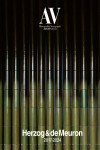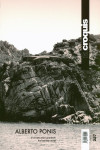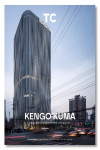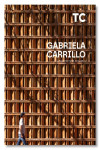DOMUS 1970-1979
Charlotte & Peter Fiel
Datos técnicos
- ISBN 9783836593861
- Año Edición 2023
- Páginas 640
- Encuadernación Tapa Dura
- Idioma Inglés
Sinopsis
The best domus coverage of the 1970s, a crucial era where postmodernist tendencies were first detected, individuality in style and construction methods began to make its mark, and the global energy crisis pushed ecological awareness to the fore – featuring Renzo Piano, Richard Rogers, Kisho Kurokawa, and the groundbreaking Centre Georges Pompidou.
The Rise of Individuality and Ecological Awareness
Design and architecture turning points of the 1970s, à la domus
Founded in 1928 as a “living diary” by the great Milanese architect and designer Gio Ponti, domus has been hailed as the world’s most influential architecture and design journal. With style and rigor, it has reported on the major themes and stylistic movements in industrial, interior, product, and structural design.
This fresh reprint of the 1970s domus coverage brings together the most important features from an era marking seismic changes in architecture and design. It was a time when individualism gained momentum as a novel style, and we began to notice the first postmodernist tendencies. Faced with the global energy crisis, architects and designers imbued their methods with a new ecological awareness. For work to be featured in the magazine it had to offer function, spatial clarity, intellectual persuasion, relevant originality, and/or grace. Those groundbreaking projects and practitioners that made the cut include Shiro Kuramata, Verner Panton, Joe Colombo, Richard Meier, the modernist structures by Foster Associates and the Centre Georges Pompidou by Renzo Piano and Richard Rogers.
Otros libros que te pueden interesar
- ¿Quiénes somos?
- Gastos de envío
- Política de privacidad
- Políticas de devolución y anulación
- Condiciones Generales de contratación
- Contacto
2025 © Vuestros Libros Siglo XXI | Desarrollo Web Factor Ideas










